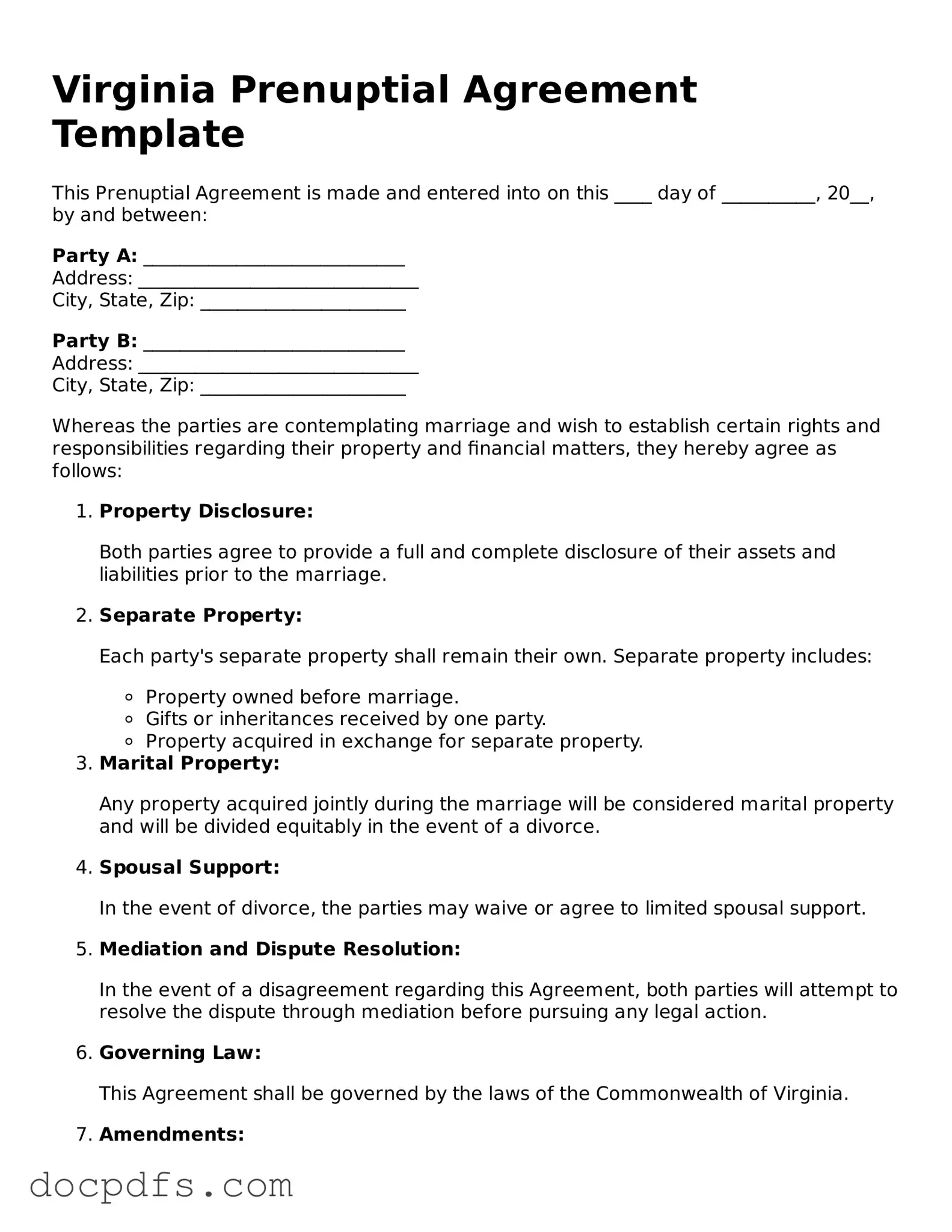What is a Virginia Prenuptial Agreement?
A Virginia Prenuptial Agreement, often called a prenup, is a legal document that couples create before getting married. It outlines how assets and debts will be divided in the event of divorce or separation. This agreement can also address spousal support and other financial matters, providing clarity and protection for both parties.
Why should couples consider a Prenuptial Agreement?
Couples may choose to create a prenup for several reasons:
-
To protect individual assets acquired before the marriage.
-
To clarify financial responsibilities during the marriage.
-
To prevent disputes over property division in case of divorce.
-
To ensure that family heirlooms or business interests remain within a family.
What should be included in a Virginia Prenuptial Agreement?
A comprehensive prenup typically includes:
-
Identification of each party's assets and debts.
-
How property will be divided in the event of divorce.
-
Provisions for spousal support, if any.
-
How to handle debts incurred during the marriage.
-
Any other specific agreements regarding finances or property.
Are there any limitations to what can be included in a Prenuptial Agreement?
Yes, there are certain limitations. For instance, a prenup cannot include provisions that are illegal or that violate public policy. Additionally, it cannot determine child custody arrangements or child support, as these matters are subject to court approval based on the child's best interests.
How does one create a valid Prenuptial Agreement in Virginia?
To create a valid prenup in Virginia, both parties must:
-
Disclose their assets and debts fully and honestly.
-
Sign the agreement voluntarily without any coercion.
-
Have the agreement in writing and signed by both parties.
-
Consider having separate legal counsel to ensure fairness and understanding.
Can a Prenuptial Agreement be modified or revoked?
Yes, a prenup can be modified or revoked after marriage. Both parties must agree to the changes, and these modifications should also be documented in writing and signed. It’s important to follow the same legal procedures as the original agreement to ensure its validity.
What happens if a Prenuptial Agreement is challenged in court?
If a prenup is challenged in court, the judge will review several factors to determine its enforceability. These factors may include whether both parties entered into the agreement voluntarily, whether there was full disclosure of assets, and whether the terms are fair and reasonable. If the agreement is deemed valid, it will be upheld.
How can couples ensure their Prenuptial Agreement is enforceable?
To increase the likelihood that a prenup will be enforceable, couples should:
-
Ensure full and honest disclosure of all assets and debts.
-
Seek independent legal advice before signing.
-
Allow sufficient time for both parties to review the agreement.
-
Avoid any signs of duress or coercion during the signing process.

